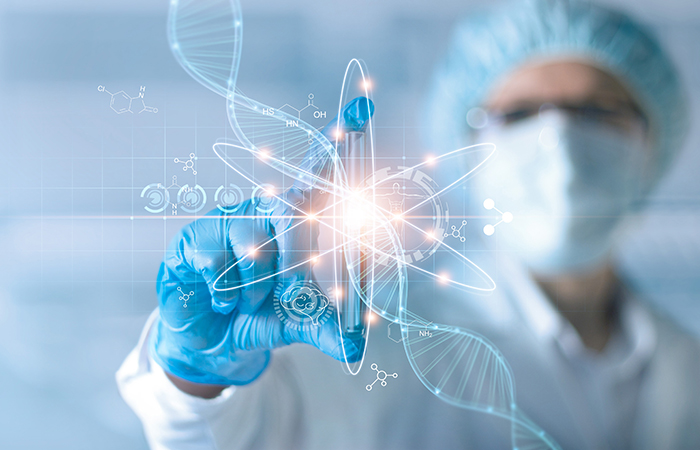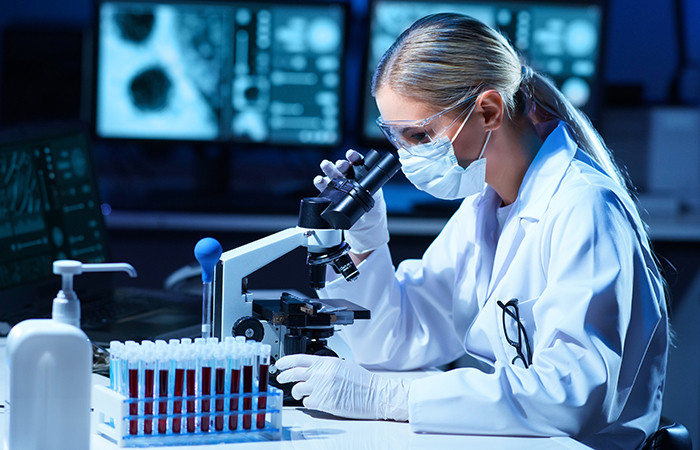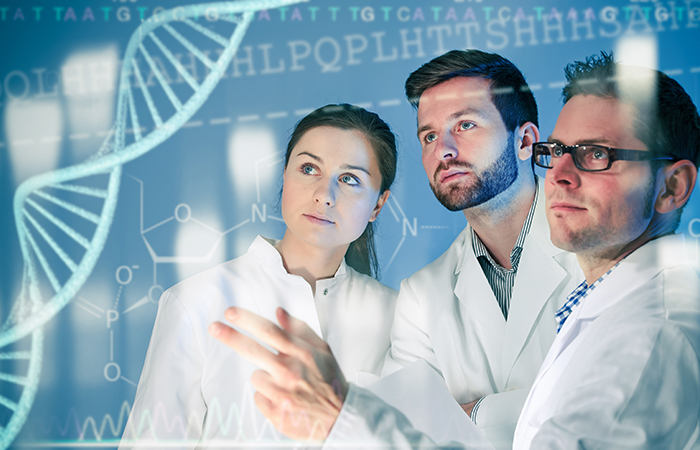


Neoantigens, or tumor mutated specific antigens, are major tumor rejection antigens, allowing tumors to activate the immune system and induce an efficient anti-tumor response. As personalized medicine for cancer therapeutics ramps up and becomes more feasible and affordable, individual patient neoantigen development is increasingly important. Identification of these neoantigens has greatly improved, with recent advancements in deep sequencing and bioinformatics technologies. Gene synthesis and mRNA production then allow for these predicted neoantigens to be synthesized and tested for T cell reactivity, differentiating true immunogenic neoepitopes from putative ones. Since patients’ mutated antigens are largely unique to the individual, speed is one of the most important goals in identifying and verifying true neoantigens for induction of the T cell-mediated immune response.
The need for rapid vaccine development in response to emerging pathogens has become increasingly clear during the COVID-19 pandemic. However, traditional methods and systems of vaccine discovery, development, and manufacturing can be complicated for manufacturers, regulators, and public health officials — especially for endemic viruses (e.g., influenza), where manufacturers must adjust the vaccine to counter the virus’ constant antigenic variation.
In comparison, mRNA vaccine production is more time- and cost-effective, as it is less complicated, and can be easily adapted to accommodate new candidates within an established manufacturing pipeline. Given this, vaccinology has recently seen a shift toward synthetic mRNA approaches, which allow for rapid, scalable, and cell-free manufacturing of prophylactic and therapeutic vaccines.
For development of mRNA vaccines, de novo gene synthesis allows for increased specificity of antigen proteins, more efficient vaccine adjuvants, and safer specialized vectors. Through codon-optimization of these genes and vectors, targeted and safe vaccines can be created rapidly to treat newly emerging viral threats, such as influenza, coronaviruses, and Ebola.

Targeting complicated membrane-bound proteins such as GPCRs and ion channels is at the forefront of antibody discovery. However, as the targets of biotherapeutics become more complex, an increasing number of candidates must now be screened in order to identify quality antibody leads against these difficult target classes.
In an attempt to achieve this throughput, antibody discovery labs now have to grapple with long wait times from synthetic biology service providers or hands-on, labor-intensive protocols often involving bacterial cultures, DNA extraction processes and quality control to build heavy and light chain constructs and amplify them before they are ready for expression.
The process of changing an organism's original molecular code is called genome engineering or genome editing. The term editing has gained more popularity over the last few years with the discovery of CRISPR molecules that power genome engineering processes with more precision.
DNA synthesis is a fundamental tool in genome engineering, whether you are engineering an existing genome or building one from scratch. Traditional molecular cloning and gene editing steps are tedious, manual in nature and require cellular transformation, which can take three to four weeks. In addition to being time-consuming, classic genome engineering and DNA assembly techniques are limited in the size and complexity of constructs that can be engineered.
Scientists are no longer willing to wait weeks or sometimes months for sequence builds. The ability to quickly make large and complex error-free DNA molecules comprising entire gene sequences is what separates Telesis Bio from the rest.

An mRNA-based approach to therapeutics has recently emerged as an alternative to monoclonal antibody-based drugs, which often require complex production and purification processes, and aberrant post-translational modifications of the antibody.
With the mRNA-based approach to therapeutics, the genetic information of the antibody — not the antibody itself — is delivered. Transient gene transfer aims at administering the mAb-encoding nucleotide sequences in DNA or mRNA form, rather than the mAb protein itself, directly to patients. This allows for the in situ production of biologicals in a cost- and labor-effective manner, potentially for a prolonged period of time.
Metabolic engineering involves reconstructing and optimizing biosynthetic pathways in model organisms, creating robust cellular factories that enable efficient bioproduction of proteins, enzymes, metabolites or biomolecules for a variety of applications. However, many parts of these pathways have not been characterized or tested to demonstrate their function. Using recombinant or novel genes or gene circuits to make changes in the parts that make up these host pathways, can then enable precise and effective production of valuable biomolecules for applications in the biomedical, industrial and research areas.